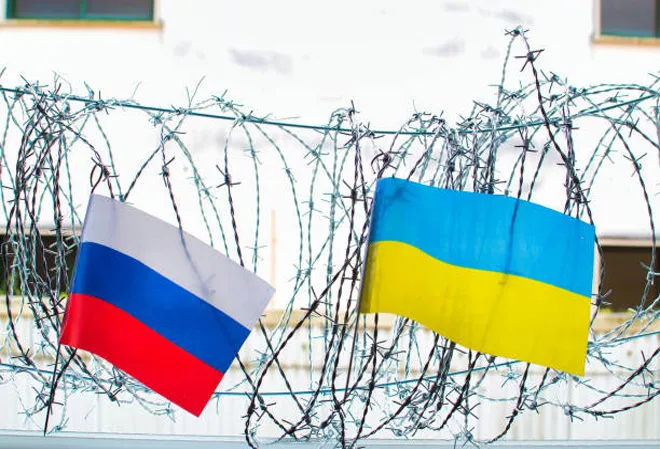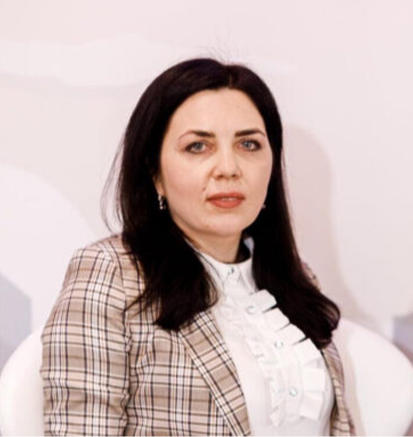
With no negotiations in sight and renewed backing from the West, the Russia-Ukraine War is still far from over
The Russian-Ukrainian war has entered a new phase.
During the 10 months of war, Ukraine has managed to recover part of its territories occupied by Russia, and also to prevent the collapse of the economy. Winter has not halted military operations. The Ukrainian military leadership stresses that the war cannot be put on pause, because it will allow Russia to accumulate additional resources for new offensives in the spring. Therefore, the steady supply of weapons and the ability to raise more resources will determine the course of the war in the next few months.
The successful passage of winter, both for the Ukrainian army and the Ukrainian state in general, largely depends on the financial and military support of partners. During the 10 months of the war, world leaders across the globe faced its consequences—mainly rising prices for energy resources and food products. This increases the negative pressure on the governments of different countries, even those that are determined to provide further financial and military support to Ukraine. Last week, Volodymyr Zelenskyy visited the United States (US)—his first foreign visit since the Russian aggression began in February last year.
The Ukrainian military leadership stresses that the war cannot be put on pause, because it will allow Russia to accumulate additional resources for new offensives in the spring.
President Zelenskyy's visit to the US pursued important goals. First, to ensure further political, military-technical and financial support to Ukraine. Secondly, to coordinate the strategy and tactics of confronting Russia on the military front as well as in the political and diplomatic sphere.
As President Zelenskyy stated, he left Washington confident that the Ukrainian military forces are in control of the situation on the battlefield, and this is due to the comprehensive American assistance to Ukraine.
The leadership position of the US plays a key role in supporting Ukraine and forming a coalition of Western partners. At the same time, the West is monitoring Ukraine's military capabilities due to fears of being involved in a conflict with the Russian Federation. Thus, Ukraine has still not been able to obtain Army Tactical Missile Systems (ATACMS), modern tanks and armoured personnel carriers such as Leopard, fighter jets, and other key weapons important for counteroffensive operations and the return of Ukrainian territories. During his visit to the US, Zelenskyy finally received approval to provide Ukraine with American Patriot systems, which are an important step towards strengthening the country's air defence.
The Ukrainian army maintains that it has the potential to take back the territory occupied by Russia, but for this, it needs more weapons. Postponing the provision of the latest air defence systems and military equipment to Ukraine, which can accelerate the liberation of Ukrainian territories, leads to further destruction of Ukrainian cities and villages, an increase in civilian casualties, and the continuation of the war.
Western partners are cautious about providing Ukraine with new types of weapons, taking into account the constant threats from the Russian authorities of even greater escalation and the use of nuclear weapons. The reluctance of the Ukrainian authorities to sit down at the negotiating table on Russia's terms and the success of the Ukrainian army on the battlefield prompts the Russian authorities to seek new methods of blackmail and coercion for peace on their terms.
Postponing the provision of the latest air defence systems and military equipment to Ukraine, which can accelerate the liberation of Ukrainian territories, leads to further destruction of Ukrainian cities and villages, an increase in civilian casualties, and the continuation of the war.
Russian aggression against Ukraine is accompanied by the use of terror methods against civilians—shelling of cities, civilians, and civilian infrastructure. The This resulted in the destruction of the Ukrainian power system (currently 50 percent destroyed) during the winter and led to several blackouts throughout the country. Russian officials do not hide that they are using this strategy to pressure the Ukrainian military—whose families are without heat and electricity—and the Ukrainian authorities to agree to make concessions to Russia.
Russia is seeking a short-term truce to freeze the conflict within the territories it currently holds and to get time to prepare for another large-scale strike. The , in particular, the probability of a second attempt to capture Kyiv.
Readiness for negotiations, which the Kremlin has repeatedly voiced, contrasts with the practical steps taken by the Russian Federation. In early December, the country’s Ministry of Defense announced plans to soon increase the number of the country’s armed forces to 1.5 million servicemen, create new military units near Ukraine’s borders, and carry out a series of reforms to improve the army's combat capability, the Kremlin continues to pressure President Lukashenko to attract Belarusian soldiers in military operations against Ukraine”. Therefore, the fact remains that the Kremlin has not given up on its intentions to seize the entire territory of Ukraine and is preparing for a long confrontation.
However, if at the beginning of the war it was about the survival of Ukraine as a state, now the situation has changed significantly. After heavy military losses and military failures and the Russian isolation by the West and its allies via harsh sanctions, the Russian government is in a difficult situation. The probability of defeat in the war becomes a serious challenge for the Russian authorities and Putin personally, and may also cause unforeseen consequences within Russia itself.
In this regard, among many Western allies of Ukraine, there is still no unity regarding what the end of the war should look like, and there are fears that the defeat of Russia on the battlefield may lead to strengthening of the internal conflict within Russia itself since Putin's loss of power can lead to the struggle between different groups of influence, such as Prigozhin and Kadyrov on the one hand, the security forces and the FSB on the other in which nuclear weapons can fall into the hands of non-state organisations. According to some Western politicians and experts, Moscow's military weakening could trigger a rise in independence among a number of non-Russian nations and create many security challenges similar to those that arose after the collapse of the erstwhile USSR.
The probability of defeat in the war becomes a serious challenge for the Russian authorities and Putin personally, and may also cause unforeseen consequences within Russia itself.
At the same time, the West cannot ignore the fact that the Russian invasion of Ukraine is the biggest threat to the global security system since the end of the Cold War. Conceding to Putin will be a signal to other authoritarian regimes that they would not be held accountable for imposing their will on weaker neighbours and arbitrarily violating internationally recognised borders.
Western countries are gradually coming to understand the Ukrainian position that compromise with and concessions to Russia at the current stage will lead to the postponement of the war. They emphasise that they will not push Ukraine to negotiate with the Russian Federation, and it is Ukraine that must determine when and under what conditions it should do so. Instead, Ukrainian allies emphasise their readiness to support Kyiv “as much as it takes” to strengthen its negotiating position in the future.
The main condition for the end of the war for Ukraine itself is the preservation of statehood, sovereignty, and return to its state borders of 1991; punishment of the aggressor; and receiving reparations for the reconstruction of the country. Unfortunately, the achievement of these goals requires the continuation of military operations, as Russia is not ready to withdraw its troops from the territory of Ukraine and renounce its aggressive intentions. Therefore, there are currently no conditions for a diplomatic settlement of the conflict.
For Ukraine, this is an existential struggle. Russia is trying to destroy Ukrainian statehood and the Ukrainian nation through the imposition of Russian identity. The fiasco of Putin's invasion is largely explained by the fact that the Russian leader throughout his political career refused to recognise Ukraine as a separate and sovereign state. .
Although the war is still far from over, Ukraine has already destroyed the myth of Russian military invincibility. Even the most ardent Russian propagandists and ideologues are beginning to believe that Russia can lose the war in Ukraine. Increasing the level of escalation of the conflict through attacks on civilian infrastructure and civilians themselves is an indication of the weakness of the Russian Federation’s attempt to break Ukrainian resistance.
At the same time, each additional wave of Russian aggression strengthens the position of the West in the matter of supporting Ukraine and overcoming the fears of “not provoking Russia”, which has prevailed in the European socio-political environment for many years. Currently, the opinion is firmly rooted in the West that Ukraine acts as a kind of outpost that protects European and NATO countries from Russian invasion, which is why the victory of the Russian Federation cannot be allowed. As the price of war continues to grow, the cold Ukrainian winter promises to be a blazing battlefield.
The views expressed above belong to the author(s). ORF research and analyses now available on Telegram! Click here to access our curated content — blogs, longforms and interviews.




 PREV
PREV


